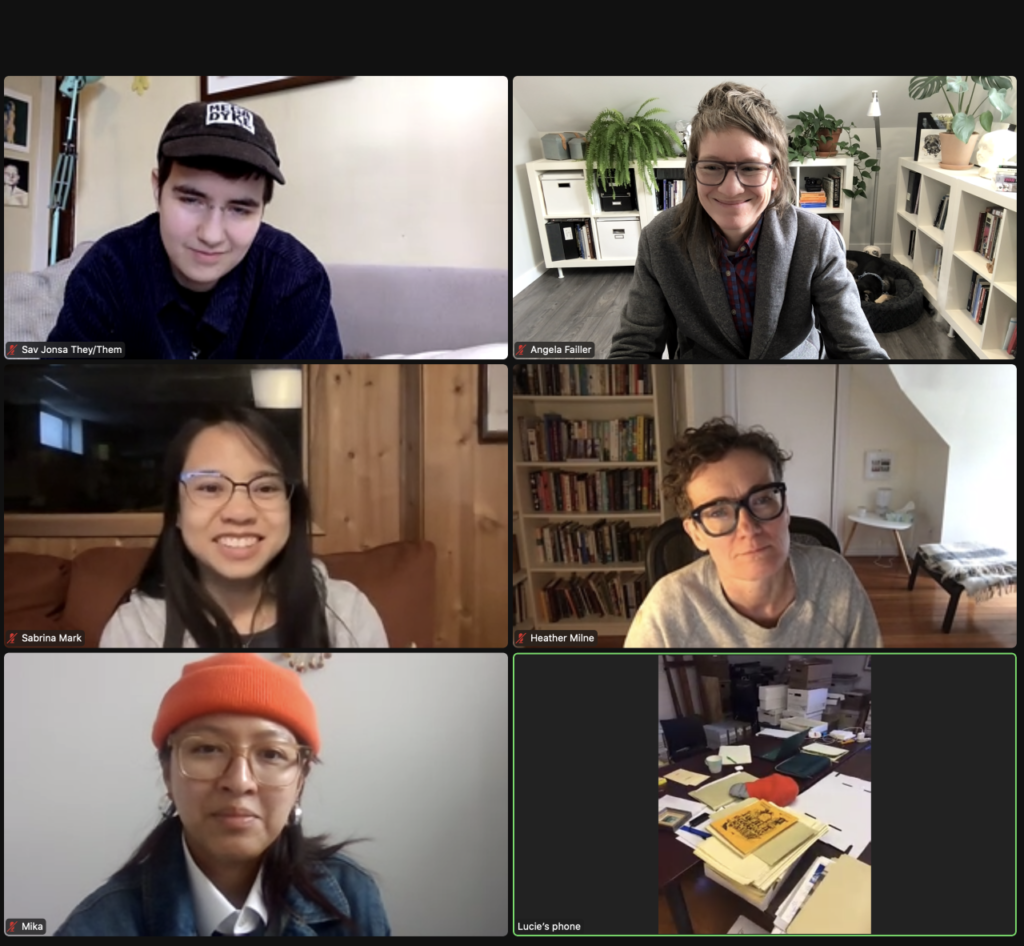
On March 28, 2022, members of Museum Queeries enjoyed a virtual presentation and tour of the ArQuives: Canada’s LGBTQ2+ Archives given by Lucie Handley-Girard, Archivist. The ArQuives is one of Museum Queeries’ partner organizations, and we were excited to have the opportunity to learn more about this institution, both its history and the work that it is currently doing. With the restrictions imposed upon us by this pandemic, the online format allowed us a look into the workings of the ArQuives from a distance, in anticipation of the day when we will be able to visit in person. As a research cluster, we were especially interested in how archives of historically marginalized communities are formed and evolve over time as well as how they are accessed by community members and the public. Museum Queeries Research Assistants and Research Coordinator offer the following SnapThoughts.
Check out the ArQuives and explore their online collection here: https://arquives.ca/
“A lot of the archived materials we saw seemed to transcend time. As the fight for Two-Spirit, queer, and trans rights still continues despite so much progress, it’s interesting to see how posters about police brutality, buttons for AIDS awareness, and even photographs showing queers’ rebellious fashion from 40 years ago could easily be mistaken for having been made today. I found myself searching for some type of date stamp or faded colouring to decipher just how old or new a piece was in order to put it into the correct historical context within my mind. The fact those markers are what would give away its age instead of the pure content itself is what I find to be a powerful realization of where we are in society and where we still need to go.” – Sav Jonsa
“In the beginning of our tour, we were explicitly told that decolonizing the ArQuives would be an impossible task. Our tour guide, Lucie Handley-Girard, explained that an archive that was so fundamentally rooted in white supremacy simply could not be decolonized. This really surprised me. I am used to hearing institutions state land acknowledgements followed by statements of reconciliation and decolonization and other similar gestures. I have never heard an institution be so transparent about its whiteness and its roots in racism before. The statement surprised me to the point that it left me fumbling with many uncomfortable questions well after the tour. I wondered what it would mean for Indigenous scholars to engage with the ArQuives in the future. I wondered about the collections that contained Two-Spirit or queer Indigenous content, and what it would mean for them to be housed within the ArQuives. Most importantly (and most uncomfortably), I also wondered about the compatibility of lgbt justice and decolonization. More specifically, I wondered about whether the pursuit of lgbt justice within an archive might pose any limits on achieving a decolonized/decolonial archive.” – Mika Castro
“During this tour of the ArQuives, I was struck by the humanity of the content. The artifacts and materials housed and displayed centre the humans behind the objects in a variety of ways. For starters, the ArQuives accepts personal donations for their collection, creating an archive of materials that individuals felt were important to them. Lucie also talked about the impact that viewing the archives has for some people, who are seeing materials that belonged to friends and family members. Hearing that reminded me that there is a community of people attached to every object at the ArQuives because the objects once belonged to individuals who were or still are a part of communities. While much of the content might look isolated and rather sterile on its shelves and in various filing boxes, it is actually alive and tied to real people and communities.” – Sabrina Mark
